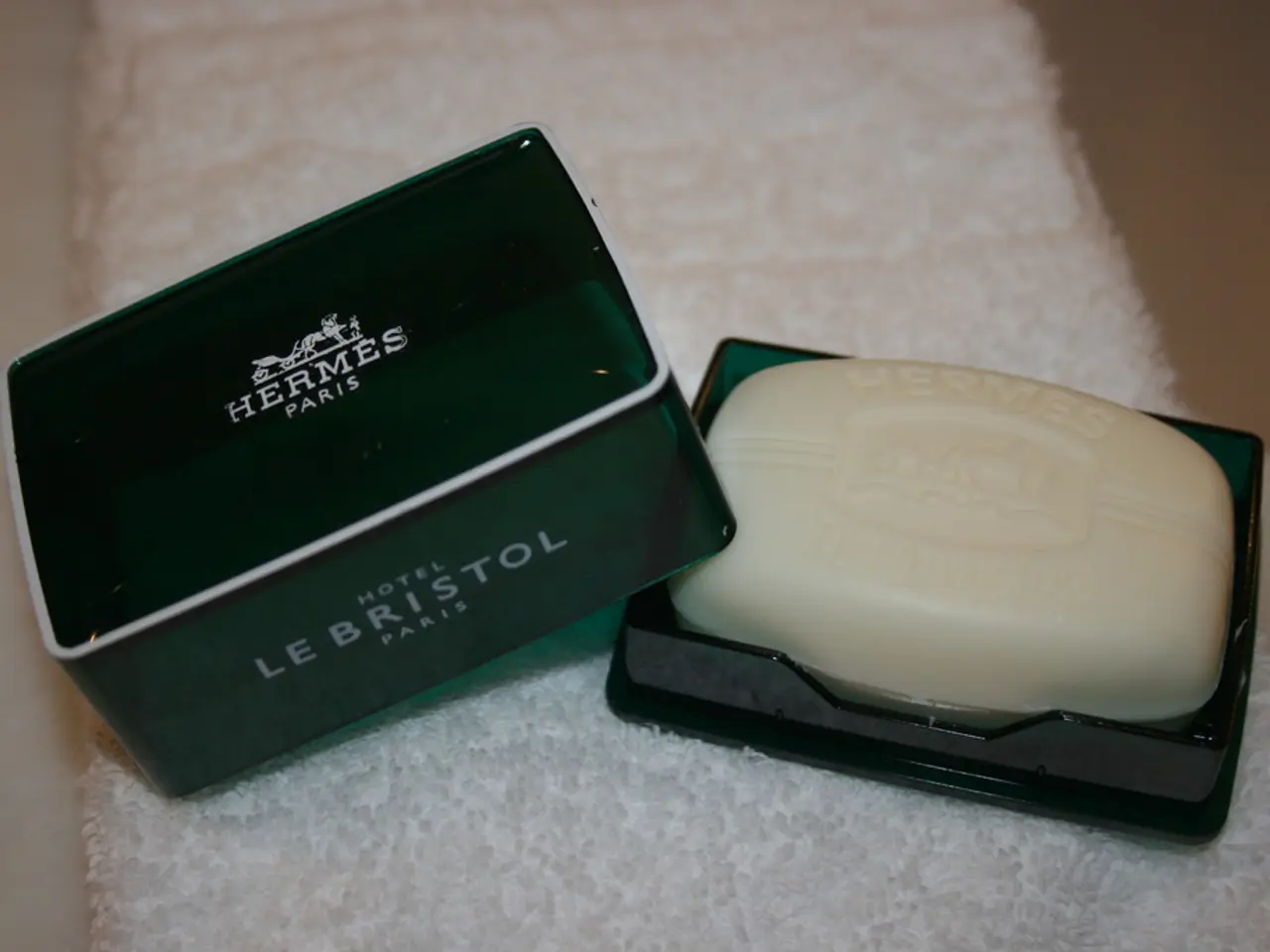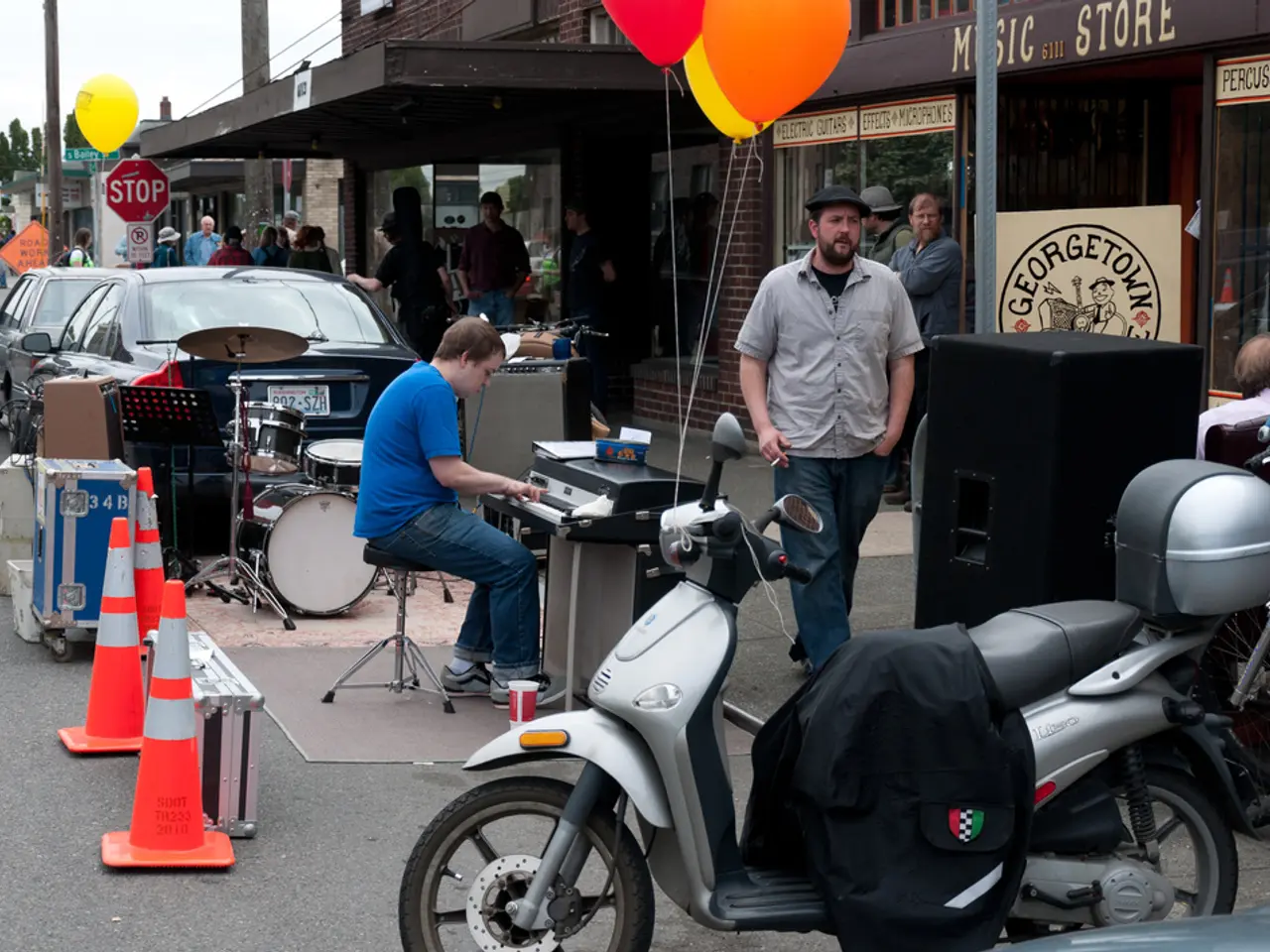Preparing for a Power Failure or Blackout: Essential Steps to Follow
Preparing for Severe Weather-Related Power Outages in Victoria
In the face of severe weather events, Victoria residents are advised to take proactive measures to ensure their safety and resilience during power outages. Here are practical steps to prepare for such situations, focusing on device charging, emergency kit assembly, food storage, home and vehicle preparation, and more.
Charging Devices
Ensure all essential devices like mobile phones, laptops, and power banks are fully charged well before an expected outage. Keep portable chargers and power banks ready to maintain device functionality during blackouts.
Assembling an Emergency Kit
Prepare an emergency kit that includes flashlights or headlamps with extra batteries, a battery-powered or hand-crank radio for receiving updates, first aid supplies, necessary medications, personal hygiene items, important documents in a waterproof bag, and any other essential items. The kit should be easily accessible and sufficient for all household members.
Purchasing Non-Perishable Food
Stock up on non-perishable food items such as canned goods, dried fruits, nuts, energy bars, and bottled water. This ensures you have adequate nutrition and hydration if refrigeration and shopping become impossible during the outage.
Preparing Your Home
Install surge protectors to minimize damage from voltage spikes caused by lightning or power restoration surges. Ensure your home is resistant to severe weather by securing loose objects, clearing gutters, and creating defensible space if fire risk is involved. Know how to safely disconnect electrical appliances to prevent damage or fire risk.
Preparing Your Vehicle
Keep your vehicle's fuel tank at least half full, as fuel pumps can be affected by outages. Store emergency supplies in your car, such as water, blankets, and a flashlight. Keep a car charger for your phone to maintain connectivity during an outage.
Additional Considerations
For vulnerable households, especially those relying on life support equipment, Victoria requires registration with energy providers to receive priority assistance during outages. These customers cannot be disconnected due to unpaid bills and get tailored preparation information.
During a power outage, it is important to check the source and nature of the outage, listen to a battery-operated radio for updates from emergency services, and to contact a licensed electrician if the outage is localized to just your home or part of it.
In the case of a severe weather event, it is recommended to secure loose items in the backyard, organize key documents, and gather any sentimental personal items in case you need to quickly leave your home.
A prolonged power outage may render the contents of your fridge or freezer unsafe to eat, so it is important to have enough supply of non-perishable food and drink on hand, including bottled water. Consuming foods that don't require cooling or cooking, such as breakfast cereals, canned fruits and vegetables, or jerky, is recommended during a power outage.
Closing curtains or blinds can help retain a normal temperature inside the house during a power outage. Turning off and unplugging all electrical appliances and unplugging them at the switch protects a home from power surges during a storm-related power outage.
Gas appliances do not work during a power outage or blackout as connections to the gas mains will not work. Keeping the doors of the fridge and freezer closed during a power outage helps keep food and drink cold for as long as possible.
RACV Contents Insurance provides up to $500 to replace spoiled food or prescription medication if an insured event interrupts the electricity supply to your fridge or freezer. Using torches rather than candles as light sources during a power outage helps avoid a fire risk.
During a power outage, it is important to drink plenty of water, avoid strenuous activities, and hang wet towels in a room during summer to stay cool. In winter, wearing multiple layers of clothing and a hat can help to stay warm without turning on the heater.
Cold or frozen food must generally be less than 5°C to be safe to use after a power outage. Checking the fridge and freezer contents once power is restored and noting how long the power was out can help avoid food poisoning.
Advanced solar batteries can even be set to provide storm alerts and automatically charge from the grid if necessary to ensure a full battery during a power outage. Solar power systems automatically stop working during a power blackout to stop power flowing back into the grid.
Disposable baby wipes can be used for personal hygiene when hot water is unavailable during a power outage. Home Insurance may cover damage caused to property or contents during events that cause power loss, such as fires, floods, or storms.
Investing in a good stock of back-up batteries is recommended during a power outage. If a home has solar and battery backup that can provide power during a blackout, only essential appliances such as the refrigerator, freezer, and lights should be run to conserve battery power.
In the event of a scheduled power outage, it is recommended to charge key communication devices such as mobile phones, tablets, and laptops, and to assemble an emergency kit that includes first aid supplies, medicines, toiletries, torches, and portable power banks. If a power outage occurs unexpectedly, it is advisable to follow the same guidelines to ensure preparedness.
By following these guidelines, residents of Victoria can enhance their safety and resilience during severe-weather-related power outages.
Maintaining a balanced lifestyle is crucial during a power outage; set aside time to prepare home-and-garden essentials such as securing loose yard items, closing curtains or blinds for temperature control, and organizing important documents. Keep a home-and-garden emergency kit stocked with tools like hand-held torches, multipurpose wipes, and essential documents to ensure peace of mind during uncertain times.




